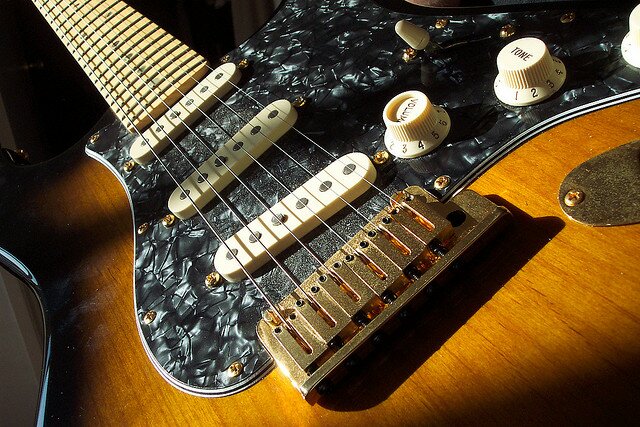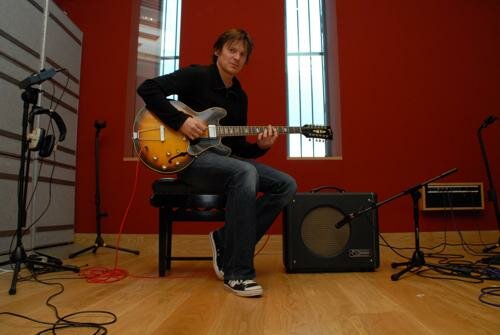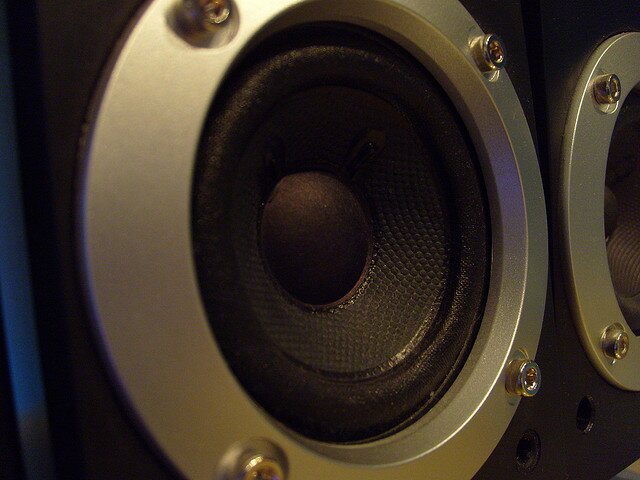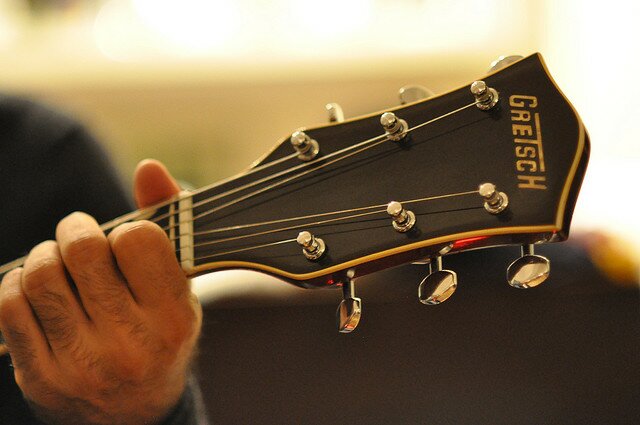Why a Music Theory Course

Here’s the rub. If you go about learning just a chord here or there and putting them together you are simply mimicking someone else’s patterns. You can even get by doing this and be creative at it as well. But if you study songs you begin to realize that they have a structure.
Music Theory is a language with specific principals that allow you to communicate and provide a frame work for you to learn in or to create new songs.
So you might ask yourself what are the 7 basic chords that I will be using in this song that is written in D major. You see it has to sharps, and you can read the chords and fret patterns, but do you know that if you new music theory that you may actually learn flow and structure and be able to learn the songs 4 or 5 times faster?
I know guitarists that are taught the riffs, and specific chords, how to put them together, and even how to make things sound really good. I’ve also had these same folks come to me and say that they really don’t know music. And want to learn the theory.
As they accomplish learning the music principles and elements they begin to understand how songs are formed and how chords and the chord progressions are messed into a structure.
Communicating with Other Musicians
Work with other musicians requires you to learn this musical language really well. The trouble with typical approaches of teaching music theory is that they are slow and don’t get you the vital or should I say practical music theory.
My observations are that a considerable amount of time is spent on techniques to play your instrument. The music principals are brought in one at a time and properly connected.
The most successful approach I’ve seen to helping a guitarist or any other musician is the direct music theory approach which will cover theory concepts in complete segments and do it quickly. In these cases it does accelerate your experience with learning music and your ability to use that knowledge.
So How Do I Decide What Music Theory Course To Use?
There are several good courses on music theory. But I’ve found that they often are to academic in nature and developed under guidelines for education. This is well and good if you are in that school mindset. However, I’ve discovered that the independent folks that look specifically to teaching the subject for maximum effect have the best courses.
The workshop method has had some of the best results. It starts with the basics and creates a base that can be built upon swiftly to an Intermediate level. The workshop method gets you emerged into concepts and expands them so that you get a big picture, go to detail, and revisit the big picture again.
The result of this is approach is that you learn the framework and structure and then can apply it to your study of specific songs.
What Else to Look For in A Music Home Study Course
What should a music theory lesson resemble?
Everyone has a notion of what a good music theory lesson should accomplish, but few know what it takes to make a lesson work to its fullest extent. Let’s start with the premise that it should cover the fundamentals through proven methods of learning engagement.
Arggggg, what is learning engagement?, you are probably asking. Here is my take on it.
The lesson would apply a method to connect the three sensors of Visual, Kinesthetic, and Auditory to give the best results for learning. These three senses are what we use in our everyday life to learn from the school of hard knocks. (wouldn’t it be better to not have the hard knocks?)
So what must be done is to combine the physical of some form of writing or using the hands. Add a visual component such as reading graphics or pictorial graphs. Then engage the auditory through a focus on listening or speaking out loud about a component. A good example is the visual and tapping and counting out loud of rhythm. You can read more about the complete idea of teaching music methods.
Goal Setting for Learning Music Theory
Setting up goals to get to the essential music theory is based on knowing targets to accomplish those goals. The outline I use is:
- identify your goal – know where you want to get
- identify targets to get to that goal – some intermediate steps
- Keep your eye on your goal – don’t lose sight of where you’re going
- Create a condition for a direct path to that goal – don’t allow yourself to get distracted
- Work to achieve your goal – take a break if you have must, but don’t give up
By setting up a clear image of what you want to accomplish and setting a direct path of accomplishment you will get there. It takes some commitment of focused concentration and applied energy on a regular basis and you will achieve your goals quickly and easily.
Next Steps
- Decide whether you need to expand your music knowledge and skills set with music theory.
- Then obtain a good home study music theory course.
- Spend 10 to 15 minutes a day working on the principles of music
- Enjoy and apply your new found knowledge to your playing and practice.
Author info: Brad Chidester is the owner and publisher of the Music Learning Workshop “Getting It Down Cold” series of Home Study Music Theory Lessons. You can find out more about Music Theory and other Courses at the MusicTheoryWorkshop.com.
image credit – Zero One





